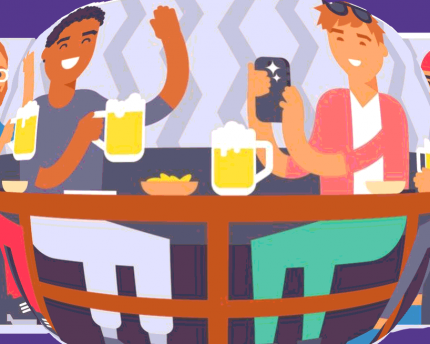
In his high school days, Kavanaugh, then a student at an elite Maryland prep school, drank with friends. Christine Blasey Ford, a California professor who grew up in the same area, contends a drunken Kavanaugh assaulted her when both were teenagers. As the hearing progressed, Sen. Amy Klobuchar, D-Minn., pressed Kavanaugh about his drinking.
“In your written testimony, you said sometimes you had too many drinks. Was there ever a time when you drank so much that you couldn’t remember what happened or part of what happened the night before?” the senator asked.
“No,” Kavanaugh said. "I remember what happened. And, I think, you've probably had beers, senator and ... "
"So you are saying that there has never been a case where you drank so much that you didn't remember what happened the night before or part of what happened?" Klobuchar pressed.
"You're asking about blackout," the judge responded. "I don't know. Have you?"
He later apologized for the flippancy. But what, exactly, is a blackout drunk? While the term refers to memory loss due to alcohol or drug abuse, it is more commonly associated with alcohol. Here is the rundown:
What is blackout drinking? First, the word blackout does not refer to passing out. In fact, blackout drunks move around and continue to drink. But later they don’t remember what they did. The brain “fails to transfer the person’s short-term memory information to long-term memory storage,” according to the Center on Addiction.
There are two types of blackout. The first is en bloc, or a complete blackout, another type of blackout involves fragmentary memory loss. “An en bloc blackout is complete amnesia for significant events otherwise memorable under usual circumstances,” according to “Alcohol-Induced Blackout,” found on the website of the U.S. National Library of Medicine. “The defining characteristic of a complete blackout is that memory loss is permanent and cannot be recalled under any circumstances.”
Why does it happen? Blacking out from drinking is associated with gulping alcohol or binge drinking. "Typically, the condition is induced when a person’s blood alcohol content reaches 0.15,” reports the American Addiction Centers, which notes that in most states it is illegal to drive with a blood alcohol content of 0.08.
How common is it? In a survey of 772 college undergraduates, students were asked: “Have you ever awoken after a night of drinking not able to remember things that you did or places that you went?” Of students who had consumed alcohol, “51 percent reported blacking out at some point in their lives, and 40 percent reported experiencing a blackout in the year before the survey,” reports the National Institute of Alcohol Abuse and Alcoholism.
How dangerous is it? Plenty. The students who had reported blacking out later learned “that they had participated in a wide range of potentially dangerous events they could not remember, including vandalism, unprotected sex and driving,” according to the institute.
Resources:
- American Addiction Centers: Blackout Drinking -- Impaired Judgement, Memory Loss, and Other Harmful Effects.
- Center on Addiction: The Science Behind Blacking Out, by Alma Hidalgo.
- National Institute on Alcohol Abuse and Alcoholism: Alcohol's Damaging Effects on the Brain.
- U.S. National Library of Medicine, International Journal of Environmental Research and Public Health: Alcohol Induced Blackout, by Hamin Lee, Sungwon Roh and Dai Jin Kim.
Related:
Drinking interventions don't help students
Like us on Facebook and tell us what you think.